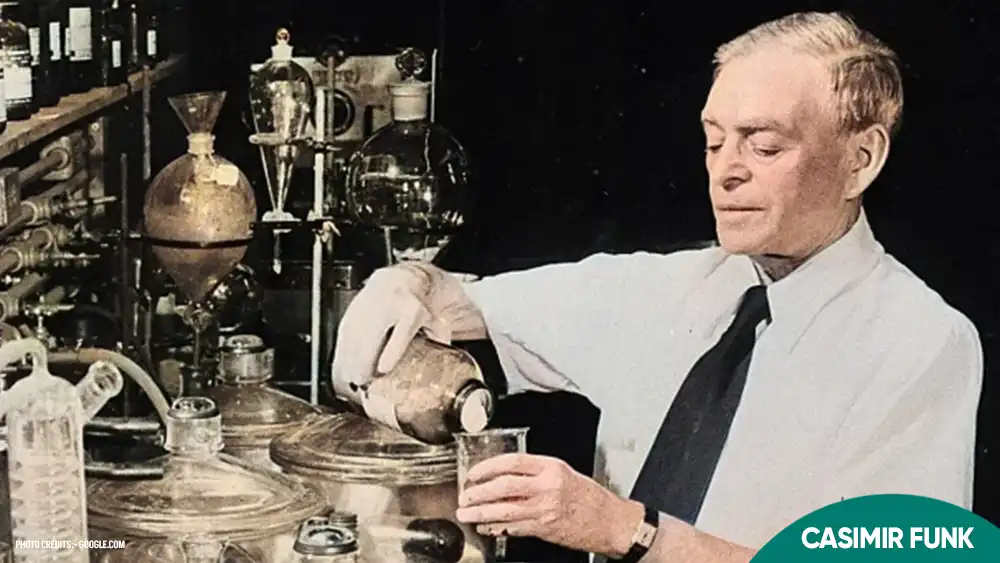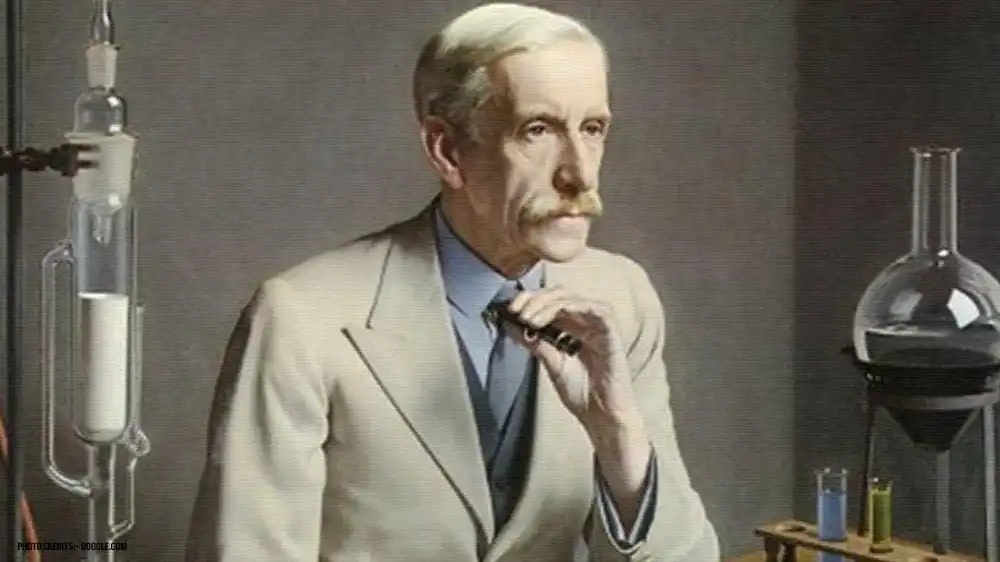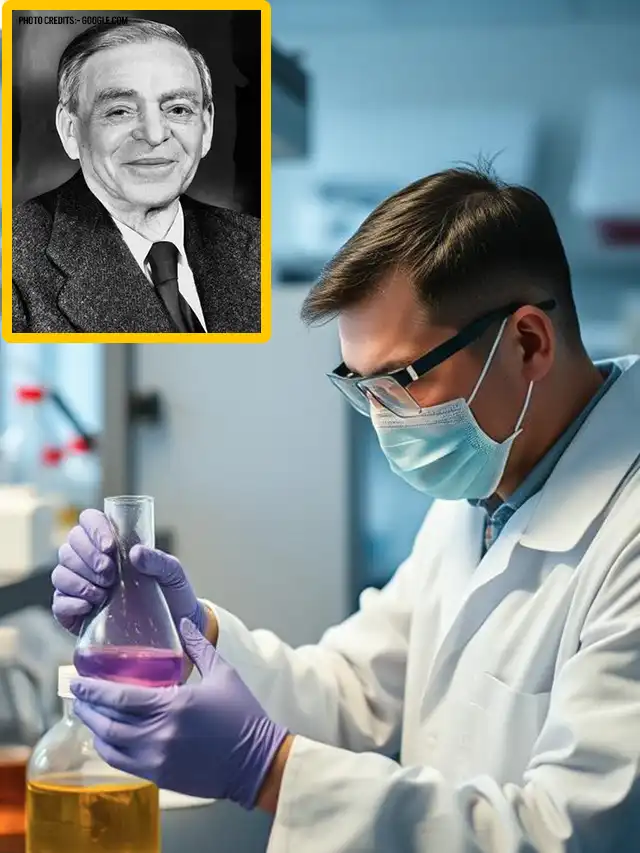
HEALTH BLOG
Casimir Funk Cause of Death: Exploring the Life and Legacy of the Vitamin Pioneer
-
Rahul Priydarss
Discover the life and legacy of Casimir Funk, the pioneer of vitamin research, and learn about his significant contributions to nutritional science. This article explores his groundbreaking discoveries, including the identification of essential vitamins, and examines the circumstances surrounding Casimir Funk’s cause of death. Find out how Funk’s work transformed our understanding of nutrition and public health, and understand the impact of his scientific achievements on modern medicine. Explore the lasting influence of Funk’s discoveries and the important role they continue to play in preventing deficiency diseases today.
Introduction to Casimir Funk:
Casimir Funk was a pioneering biochemist best known for his discovery of essential nutrients, particularly the concept of vitamins. Born in Poland in 1884, Funk significantly contributed to nutrition and medicine in the early 20th century. His most notable achievement was isolating a substance from rice husks that could prevent and cure beriberi, a disease caused by vitamin B1 deficiency. Funk coined the term “vitamin” to describe this class of essential compounds later shortened to “vitamins.” Funk’s work laid the foundation for understanding the role of vitamins in human health, influencing modern dietary science.
Who is Casimir Funk:
Casimir Funk was a Polish-American biochemist who is credited with discovering and coining the term “vitamins.” Born in 1884, Funk’s work in the early 20th century focused on identifying essential nutrients that the body needs to prevent diseases caused by deficiencies. He is most famous for researching beriberi, a condition caused by a lack of vitamin B1 (thiamine). Through his studies, Funk was able to isolate the substance responsible for preventing the disease, leading him to propose the existence of “vitamins,” which are essential for maintaining good health. His pioneering research helped shape modern nutritional science and emphasized the importance of vitamins in preventing various diseases.

Table of Contents
The Birth of Vitamin Theory:
The birth of the vitamin theory began in the early 20th century, with the groundbreaking work of scientists like Casimir Funk. In 1912, Funk was researching the cause of diseases like beriberi and pellagra, which were linked to poor diets. His studies on rice husks led him to isolate a substance that could cure beriberi. Funk hypothesized that certain diseases were caused by the absence of specific “vital amines” in food, which he named “vitamins.” This discovery introduced the concept that small amounts of essential compounds, later known as vitamins, were crucial to maintaining health.
Funk’s vitamin theory revolutionized the field of nutrition, shifting the focus from simply understanding food as a source of calories to recognizing its role in providing essential nutrients necessary for preventing deficiency diseases. The theory opened the door to identifying other vitamins and expanded the understanding of human health and disease prevention.
Casimir Funk Discovered Which Vitamin in 1912:
In 1912, Casimir Funk discovered vitamin B1, also known as thiamine. This discovery was pivotal in understanding the role of vitamins in preventing and treating deficiency diseases, such as beriberi, which is caused by a lack of thiamine. Funk’s work laid the foundation for the study of vitamins and their importance in maintaining health.
Funk Contribution to Nutrition Science:
Casimir Funk contributions to nutrition science are monumental. He was one of the first scientists to establish the connection between diet and disease, particularly through his research on deficiency diseases like beriberi, scurvy, and pellagra. Funk’s work was pivotal in identifying essential nutrients that the body requires to function properly, particularly vitamins. His discovery of vitamin B1 (thiamine) marked the beginning of an era of nutritional science that emphasized the importance of micronutrients for maintaining health. Funk’s insights laid the groundwork for the study of vitamins and helped to eradicate diseases caused by deficiencies, contributing to a broader understanding of how nutrition impacts overall well-being.
Coining the Term “Vitamin”:
Casimir Funk is credited with coining the term “vitamin” in 1912. Initially, he used the word “vitamin,” combining “vita,” meaning life, and “amine,” a chemical term for a specific nitrogen-containing compound. Funk believed that these essential nutrients were amines, which were vital to life, hence the name. While it was later discovered that not all vitamins are amines, the term stuck and was eventually shortened to “vitamin.” Funk’s introduction of this term provided a new framework for identifying and classifying essential nutrients, fundamentally changing the way we think about food and health.
How Did Casimir Funk Discovered Vitamins:
Casimir Funk discovery of vitamins revolutionized nutritional science and medicine. His research in 1912 on the disease beriberi led him to isolate a substance from rice husks that could prevent and cure the condition, later identified as vitamin B1 (thiamine). This discovery was groundbreaking as it revealed that certain diseases were caused by the absence of specific micronutrients rather than infections or other known causes. Funk’s concept of “vitamines” introduced the world to the importance of these compounds in promoting health and preventing diseases. His work laid the foundation for identifying other vitamins, such as vitamins A, C, D, and B-complex, which have since been recognized as crucial to various bodily functions, from immune support to bone health.
The impact of Funk’s discovery continues to be felt today, as his research initiated the development of nutritional supplements, food fortification, and better dietary guidelines, greatly improving global health outcomes.
Role in Understanding Deficiency Diseases:
Casimir Funk played a critical role in understanding deficiency diseases, which occur due to the lack of essential nutrients in the diet. Before Funk’s research, diseases like beriberi, scurvy, and rickets were common but poorly understood. His identification of vitamins as the key to preventing these conditions helped to reveal the link between diet and disease. By pinpointing specific nutrients required for bodily health, Funk’s work allowed scientists and doctors to develop targeted interventions, such as dietary changes and supplementation, that could prevent or treat these diseases. His research not only helped eliminate many deficiency diseases in the developed world but also paved the way for modern nutritional science to address malnutrition and improve public health globally.
Casimir Funk’s Research on Beriberi and Other Diseases:
Focus on Beriberi Disease: Casimir Funk’s research on Beriberi was a pivotal moment in the history of nutritional science. Beriberi is a disease characterized by symptoms such as weakness, nerve damage, and heart problems, and it was particularly prevalent in areas with rice-based diets. In the early 20th century, the disease was widely misunderstood, often attributed to factors other than diet.
Funk’s research, which began in 1912, focused on isolating the substance responsible for preventing beriberi. He discovered that a specific factor in rice husks was effective in curing the disease. Funk identified this factor as an essential nutrient that he termed “vitamine,” later known as vitamin B1 (thiamine). His work demonstrated that beriberi was caused by a deficiency of this nutrient, rather than an infectious agent or environmental factor. This discovery not only provided a cure for beriberi but also highlighted the importance of certain nutrients in preventing disease.
Connection to Other Deficiency Diseases: Funk’s research on beriberi opened the door to understanding other deficiency diseases. Following his work, scientists began to explore similar nutritional deficiencies and their links to diseases. For instance:
- Scurvy: Caused by a lack of vitamin C (ascorbic acid), scurvy leads to symptoms such as bleeding gums, joint pain, and fatigue. Funk’s work on vitamins helped emphasize the need for adequate vitamin C intake, particularly in preventing scurvy.
- Pellagra: Characterized by dermatitis, diarrhea, and dementia, pellagra results from a deficiency in vitamin B3 (niacin). Funk’s research into vitamins helped clarify the role of niacin in preventing this condition.
- Rickets: This disease, resulting from vitamin D deficiency, causes weakened bones and deformities. Funk’s work contributed to the recognition of the role of vitamins in bone health.
Funk’s discovery of vitamins as essential nutrients underscored the importance of a balanced diet in preventing a range of deficiency diseases. His pioneering research demonstrated that many diseases previously thought to be caused by other factors were, in fact, preventable and treatable through proper nutrition. This broader understanding of deficiency diseases has had a lasting impact on public health and dietary practices worldwide.
Funk’s Continued Work on Vitamins:
After his groundbreaking discovery of vitamins, Casimir Funk continued to make significant contributions to the field of nutritional science. His ongoing research helped to expand the understanding of vitamins and their roles in maintaining health and preventing disease.
Further Research and Discoveries: Funk’s early work established the concept of vitamins as essential nutrients. Following this, he focused on identifying other vitamins and understanding their functions. His research led to the discovery and characterization of additional vitamins, such as vitamin B2 (riboflavin) and vitamin B6 (pyridoxine). Each new discovery contributed to a more comprehensive understanding of how vitamins affect various bodily functions and help prevent specific deficiency diseases.
Funk also conducted studies on the chemical nature of vitamins and their impact on metabolism. His work in this area laid the groundwork for the development of vitamin supplements and the fortification of foods, which have had a profound impact on public health by preventing vitamin deficiencies on a large scale.
Impact on Public Health and Nutrition: Funk’s continued research on vitamins had a lasting impact on public health and nutrition. His work facilitated the development of dietary recommendations and guidelines that emphasize the importance of consuming a balanced diet rich in essential nutrients. The principles derived from Funk’s research have influenced nutrition policies and practices worldwide, leading to the reduction of deficiency diseases and improvements in overall health.
Additionally, Funk’s discoveries helped to establish the field of nutritional biochemistry, which explores the roles of vitamins and other nutrients in the body. His pioneering work also contributed to the growth of clinical nutrition and the use of vitamins in therapeutic contexts, such as treating and managing various health conditions.

Life Beyond Science:
Casimir Funk’s life beyond his scientific contributions was marked by his dedication to advancing medical science and his involvement in various professional and academic circles.
Personal Life: Casimir Funk was born on February 23, 1884, in Poland. He pursued his early education in Warsaw before moving to Paris for further studies. There, he earned his medical degree and conducted much of his early research. Funk’s personal life remained closely tied to his professional endeavors, as he was deeply committed to his work and its implications for human health.
Professional and Academic Involvements: Funk’s work earned him recognition in the scientific community, and he was involved in numerous professional organizations. He served as a member of various scientific societies and contributed to international discussions on nutrition and health. His work influenced both his contemporaries and future generations of scientists.
Funk also worked as a professor and researcher at several institutions, including the Institute of Biochemistry at the University of Paris and the London School of Hygiene & Tropical Medicine. His role as an educator allowed him to share his knowledge and inspire new researchers in the field of nutrition.
Legacy and Recognition: Funk’s contributions were widely recognized during his lifetime and continue to be celebrated posthumously. His pioneering work in nutrition laid the foundation for modern dietary science and earned him accolades from various scientific and medical communities. He is remembered not only for his scientific achievements but also for his dedication to improving public health through a better understanding of nutrition.
Casimir Funk Later Years:
In his later years, Casimir Funk continued to be an influential figure in the field of nutrition and biochemistry. After his initial groundbreaking discoveries, he maintained an active role in scientific research, education, and professional organizations.
Continued Research and Contributions: Funk’s work did not stop with the discovery of vitamins. In the latter part of his career, he continued to explore the biochemical nature of vitamins and their effects on human health. His research expanded to include the study of the biochemical mechanisms underlying nutrient deficiencies and the development of dietary recommendations. Funk’s continued focus on nutrition and health contributed to a deeper understanding of how vitamins and other nutrients affect various physiological processes.
Professional Roles: Throughout his later years, Funk held prominent positions at several academic institutions. He continued to teach and mentor students, sharing his extensive knowledge and experience with the next generation of scientists. His roles included serving as a professor at institutions such as the London School of Hygiene & Tropical Medicine, where he influenced many researchers and contributed to advancing the field of nutritional science.
Legacy and Recognition: Funk’s contributions were widely recognized, and he received numerous honors and awards for his work in nutrition and biochemistry. His pioneering research had a lasting impact on public health, leading to the development of dietary guidelines and nutritional supplements that have improved health outcomes worldwide.
Casimir Funk Cause of Death:
Casimir Funk died from a stroke on November 21, 1967. This condition, caused by a sudden disruption in the blood supply to the brain, led to his passing in Paris, France, where he had spent much of his later career. Casimir Funk died on November 21, 1967, in Paris, France. The precise details surrounding his death are not widely documented, but it is known that he passed away in the city where he had spent a significant portion of his later career. His death marked the end of an era in nutritional science, closing the chapter on a scientist whose discoveries had fundamentally transformed the understanding of vitamins and their role in human health.
Health Struggles in His Later Life: In his later years, Funk faced various health challenges, which is common among many individuals who have dedicated long careers to rigorous scientific work. Although specific details about his health struggles are not extensively documented, it is known that the demanding nature of his research and professional responsibilities may have contributed to his health issues.
Funk’s commitment to his work and the impact of his scientific contributions were significant despite these health challenges. His pioneering research on vitamins and nutrition had a lasting influence on public health and scientific understanding, overshadowing the personal health struggles he faced towards the end of his life.
How Did Casimir Funk Die?:
The Cause of Casimir Funk’s Death Explained: Casimir Funk died on November 21, 1967, from a stroke. A stroke occurs when there is a sudden disruption in the blood supply to the brain, which can lead to severe health complications and, in some cases, death. Funk’s passing from this condition marked the end of his influential career in biochemistry and nutrition.
Influence of His Health on His Passing: In his later years, Funk experienced various health issues, which may have contributed to his vulnerability to a stroke. The demanding nature of his scientific work and the stress associated with his professional responsibilities could have impacted his overall health. Though specific details about his health struggles are not extensively documented, it is common for individuals who have had long and intense careers to face health challenges.
Funk’s death was a significant loss to the scientific community, as his pioneering research on vitamins and their role in human health had a profound impact. Despite the health challenges he faced, Funk’s contributions to nutritional science have left a lasting legacy, and his work continues to be celebrated and recognized in the field.
Funk Legacy in Modern Nutrition:
Casimir Funk’s legacy in modern nutrition is profound and enduring. His pioneering work laid the foundation for our understanding of essential nutrients and their role in maintaining health. Here’s how Funk’s contributions continue to influence modern nutrition:
Discovery and Classification of Vitamins: Funk’s identification of vitamins as essential nutrients was groundbreaking. His discovery of vitamin B1 (thiamine) and the concept of “vitamines” revolutionized nutritional science. This framework led to the classification of various vitamins and a deeper understanding of their specific roles in preventing deficiency diseases. Today, the identification and categorization of vitamins remain central to nutritional science, influencing dietary guidelines and health recommendations globally.
Impact on Public Health: Funk’s work significantly impacted public health by highlighting the importance of vitamins in preventing diseases caused by nutrient deficiencies. His research led to the development of nutritional interventions such as food fortification and dietary supplementation, which have been crucial in reducing the prevalence of deficiency-related diseases like beriberi, scurvy, and pellagra. These interventions continue to play a vital role in improving health outcomes worldwide.
Foundations for Nutritional Science: Funk’s contributions helped establish the field of nutritional science as a distinct area of study. His work paved the way for further research into the biochemical functions of vitamins and other nutrients. This foundational knowledge has led to advancements in understanding how nutrition affects various aspects of health, including metabolism, immune function, and chronic disease prevention.
Educational and Professional Influence: Funk influenced many future scientists and nutritionists as a professor and researcher. His teaching and mentorship helped shape the next generation of experts in the field. His legacy is reflected in the ongoing emphasis on nutritional education and research, driven by the principles and discoveries that Funk established.
The Memorials and Honors Dedicated to Casimir Funk:
Casimir Funk’s groundbreaking contributions to nutritional science have been recognized through various memorials and honors. These acknowledgments celebrate his pioneering work and ensure his legacy endures in the field of nutrition and beyond.
Academic and Professional Recognitions:
Institutions and Awards: Funk’s work was honored by numerous scientific and medical organizations during his lifetime and posthumously. Various awards and medals have been named in his honor, recognizing significant contributions to nutritional science and biochemistry.
Scholarships and Fellowships: Some academic institutions and organizations have established scholarships or fellowships in Funk’s name to support future researchers and students in the fields of nutrition and biochemistry. These programs help foster new talent and continue the exploration of topics related to Funk’s work.
Named Facilities and Research Centers:
Research Facilities: Some research centers and facilities related to nutrition and biochemistry have been named or dedicated in Funk’s honor. These centers often focus on continuing research in areas that Funk pioneered, such as vitamin studies and nutritional interventions.
Educational Institutions: Certain educational institutions have dedicated spaces or named professorships in Funk’s honor, reflecting his impact on the field and his role in shaping modern nutritional science.
Publications and Tributes:
Scientific Publications: Funk’s contributions are frequently cited in scientific literature, reflecting his lasting influence on the field. Special issues of journals or commemorative publications have been dedicated to his work and its impact on nutrition science.
Memorial Lectures and Conferences: Occasionally, memorial lectures or conferences are held to honor Funk’s legacy, where experts discuss advancements in nutritional science and the ongoing relevance of his work.
Historical and Cultural Recognition:
Biographical Works: Books and articles about Funk’s life and work help to preserve his legacy, providing insights into his scientific achievements and personal contributions to the field of nutrition.
Museum Exhibits: Exhibits or displays in museums dedicated to science or nutrition may include information about Funk’s life and discoveries, helping to educate the public about his significant contributions.
Lessons from Funk Life:
Casimir Funk life and work offer several valuable lessons that extend beyond the field of nutritional science. Here are some key takeaways.
1. Pioneering Spirit in Science: Funk’s career exemplifies the importance of curiosity and innovation in scientific discovery. His willingness to challenge existing knowledge and explore new ideas led to groundbreaking discoveries in nutrition. This spirit of exploration is crucial for advancing science and addressing complex health challenges.
2. Interdisciplinary Approach: Funk’s work bridged various scientific disciplines, including biochemistry, medicine, and nutrition. His success demonstrates the value of an interdisciplinary approach in solving scientific problems and advancing understanding. Combining knowledge from different fields can lead to significant breakthroughs and innovations.
3. Impact of Dedication and Perseverance: Funk’s dedication to his research, despite challenges and health issues, underscores the importance of perseverance in achieving scientific goals. His commitment to understanding and addressing nutritional deficiencies had a profound impact on public health, showing how dedication can lead to meaningful and lasting change.
4. Importance of Addressing Real-World Problems: Funk’s research focused on solving practical health issues, such as vitamin deficiencies and related diseases. His work illustrates the significance of addressing real-world problems through scientific inquiry. Translating research into practical solutions can have a substantial impact on improving health outcomes and quality of life.
5. Role of Education and Mentorship: As an educator and mentor, Funk influenced many future scientists and researchers. His commitment to teaching and guiding others highlights the importance of sharing knowledge and fostering the next generation of experts. Effective mentorship can inspire and shape future leaders in science and other fields.
6. Long-Term Impact of Scientific Contributions: Funk’s contributions have had a lasting impact on nutritional science and public health. His work demonstrates how scientific discoveries can have far-reaching effects, influencing dietary guidelines, public health policies, and everyday practices. Understanding and appreciating the long-term impact of scientific work can help motivate and guide current and future researchers.
FAQs about Casimir Funk Cause of Death:
A1: Casimir Funk was a biochemist who introduced the concept of vitamins and discovered their role in preventing deficiency diseases.
A2: Funk coined the term “vitamin” and demonstrated their importance in preventing diseases like scurvy, rickets, and beriberi.
A3: Casimir Funk died of natural causes after experiencing declining health in his later years.
A4: Funk’s research laid the foundation for the modern understanding of vitamins, influencing dietary guidelines and public health policies.
A5: Funk’s discovery of vitamins and their impact on health transformed the field of nutrition and helped shape the way we approach diet and disease prevention.

-Please remember, to always consult with healthcare professionals or Doctors for personalised advice related to medical conditions.
Conclusion:
In conclusion, Casimir Funk groundbreaking contributions to nutritional science have left an indelible mark on the field, particularly through his discovery of essential vitamins. Despite his profound impact on understanding nutrition and preventing deficiency diseases, his life was not without challenges. Casimir Funk’s cause of death was a stroke on November 21, 1967, in Paris. This health issue marked the end of a remarkable career dedicated to advancing scientific knowledge and improving public health. Funk’s legacy endures through his pioneering work, which continues to influence modern nutrition and medicine, highlighting the lasting significance of his discoveries.




